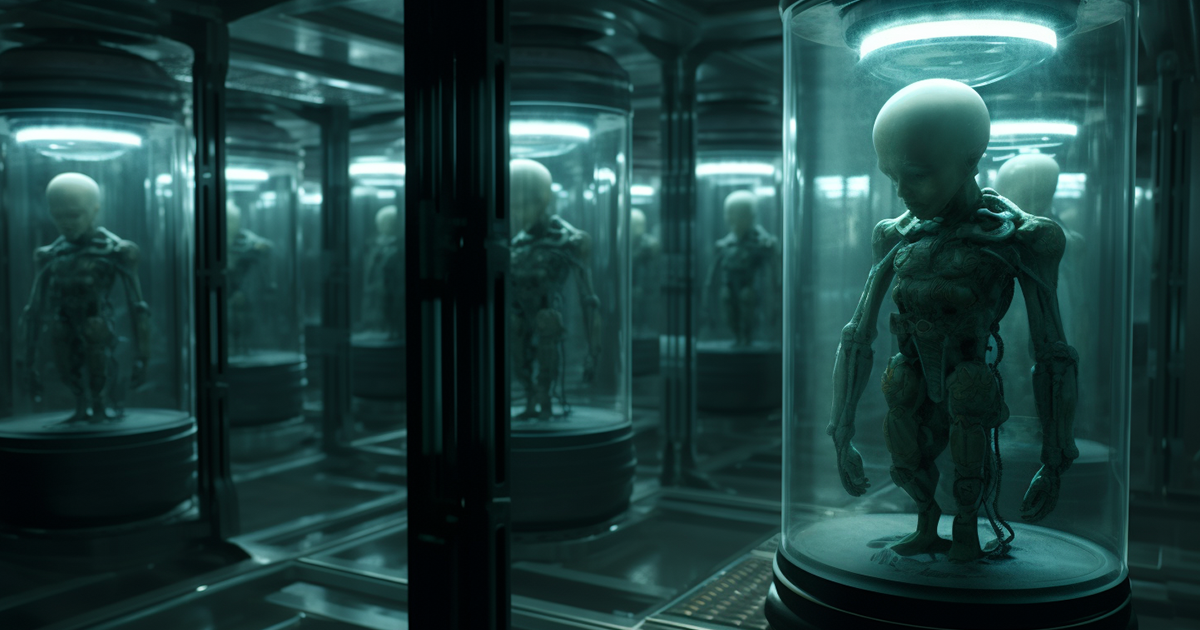The profound lore and mythical wonders enfold as we dive deep into the timeless saga of the Mahabharata. Embedded within the captivating narratives of heroes and villains lies a rich tapestry of profound ideologies that have entranced generations. Amidst the myriad themes, one luminary concept stands out: the groundbreaking exploration of reproductive science—an ancient wisdom that may astound many.
In an era dominated by modern genetic advancements and reproductive technologies, the ancient origins of the Mahabharata, rooted in ancient India, boldly ventured into realms like cloning, test tube conception, and surrogate motherhood. This revelation is truly enthralling, shattering the stereotypes associated with unlocking hidden truths and immersing us in the mesmerizing insights bestowed by this age-old epic.

Cloning Unveiled:
When pondering the notion of “cloning,” futuristic laboratory scenes typically come to mind. Yet, the Mahabharata surprises with an extraordinary portrayal of this very concept. Within its verses, the sage Vyasa, the architect of this epic, harnesses his sagacity to replicate King Vichitravirya, leading to the birth of Dhritarashtra and Pandu. These personalities hold pivotal roles in the unfolding saga, challenging conventional beliefs with Vyasa’s seemingly mystical capacity to duplicate a human.
Contemplating Test Tube Conception:
The concept of test tube babies, synonymous with in vitro fertilization (IVF), transcends modern medical marvels. In the Mahabharata, the character Kunti receives a divine boon allowing her to summon celestial beings through a sacred incantation, birthing her sons, including the legendary Pandavas, without physical union. This remarkable tale alludes to an early exploration of assisted reproductive techniques, showcasing the epic’s consideration of unconventional possibilities ahead of its time.
Exploring Surrogate Motherhood:
In contemporary discourse, surrogacy claims the spotlight – whereby one woman bears another’s child. The Mahabharata subtly delves into this theme through Queen Gandhari’s narrative. Confronting fertility challenges, she and her husband, Dhritarashtra, enlist her handmaiden as a surrogate mother, eventually welcoming a hundred sons. This anecdote unravels the intricacies of parenthood and the fascinating roles surrogate mothers assume within the epic’s intricate tapestry.
Indeed, while the Mahabharata is renowned for its epic clashes and moral quandaries, it also provides a profound insight into ancient India’s contemplations on reproductive science. Without delving into esoteric mysticism or conspiracies, we can embrace the profound reflections encapsulated in this enduring text. These sagas, far from being startling or perplexing, embody a timeless human pursuit of unraveling life’s enigmas and the enigma of creation.
Amidst the intricacies of contemporary science and technology, let us not forget that the seeds of innovation were sown centuries ago by the visionaries and scholars of ancient civilizations, akin to those that birthed the Mahabharata. By embracing this outlook, we deepen our respect for the ageless wisdom interwoven into these ancient scriptures.
